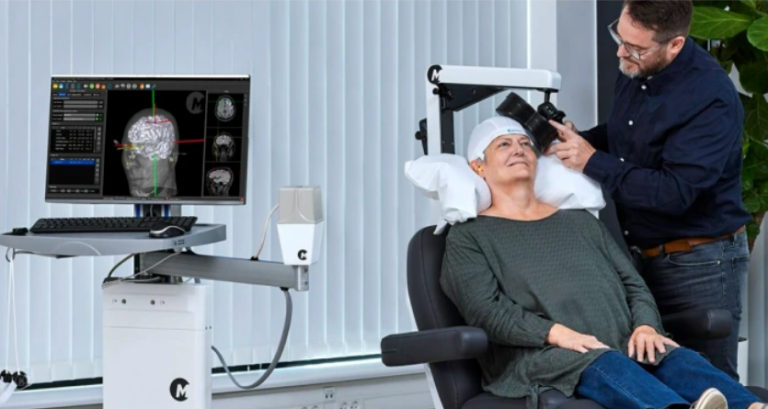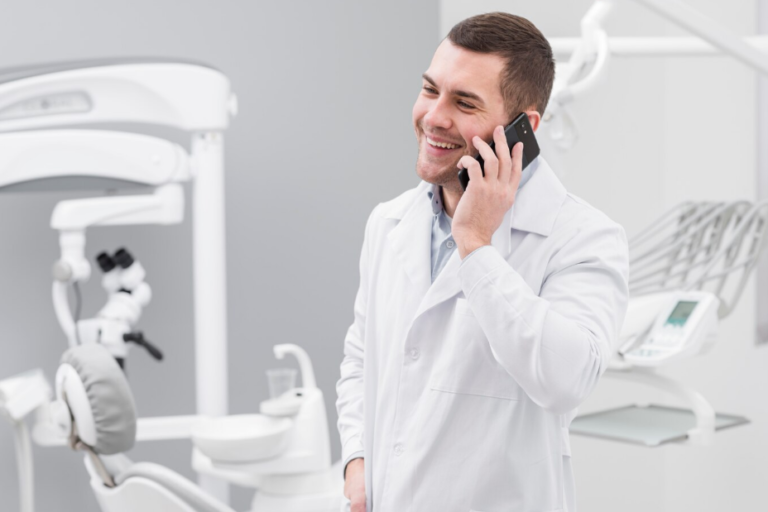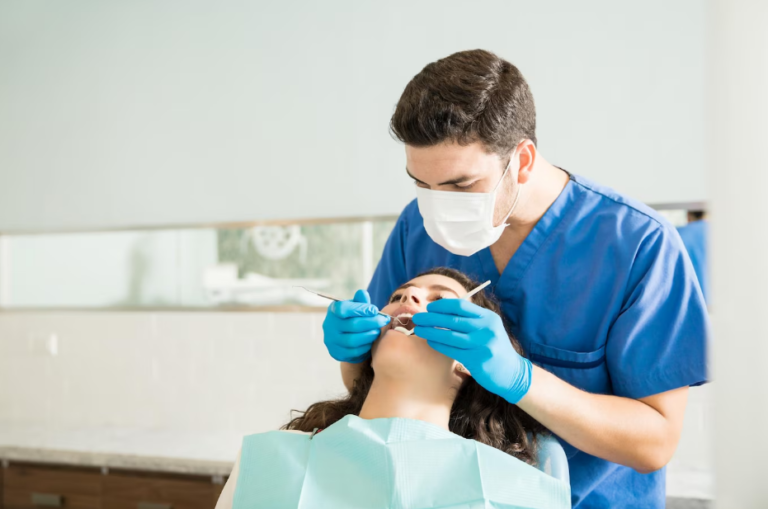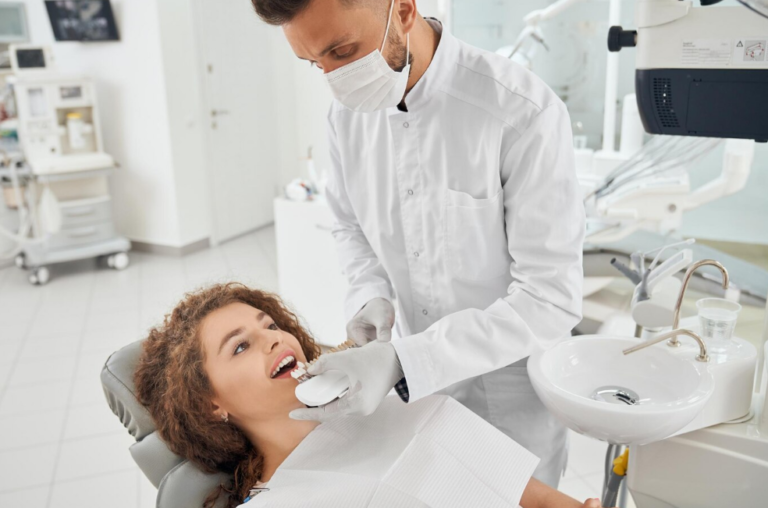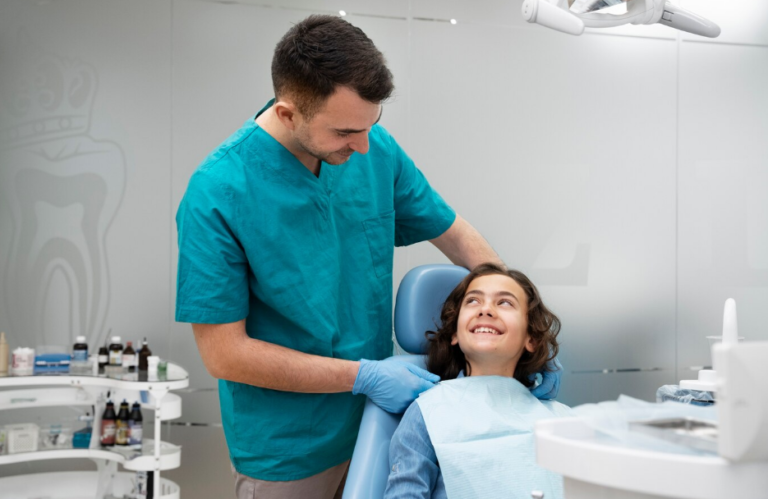Snoring or Sleep Apnea? Poway Experts Explain the Difference and Treatment Paths
Understanding the Sounds: Snoring Versus Sleep Apnea
It’s easy to think snoring is just a nighttime annoyance, but it can sometimes signal something more serious, like sleep apnea. Figuring out the difference is key, especially when considering [
Recognizing the Symptoms of Sleep Apnea in Poway
It’s easy to think that sleep apnea is just about loud snoring, but it’s way more than that. If you live in Poway and suspect you might have sleep apnea, knowing the other symptoms is super important. It’s not just about disturbing your partner; it’s about your health. Recognizing these signs early can make a huge difference in getting the right snoring treatment in Poway and avoiding serious health problems down the road. Let’s break down some of the key things to watch out for.
Beyond the Loud Noises: Daytime Fatigue
Okay, so you might think you’re just tired, right? But with sleep apnea, it’s a different kind of tired. It’s that bone-deep exhaustion that doesn’t go away no matter how much you sleep. You might find yourself nodding off during the day, even when you’re doing something you enjoy. It’s not just feeling a little sleepy; it’s a constant struggle to stay awake. This persistent fatigue is a major red flag for sleep apnea.
- Difficulty concentrating at work or school
- Feeling irritable or short-tempered
- Increased risk of accidents while driving or operating machinery
Morning Headaches and Dry Mouth
Do you wake up with a pounding headache almost every morning? And is your mouth drier than the Sahara Desert? These could be signs of sleep apnea. When you stop breathing during the night, your body doesn’t get enough oxygen, which can lead to headaches. Plus, you’re probably breathing through your mouth, which causes that awful dryness. It’s not just a bad night’s sleep; it’s a sign something’s not right.
Cognitive Impairment and Mood Changes
Sleep apnea can mess with your brain. You might find it hard to remember things, focus on tasks, or make decisions. It can also affect your mood, making you feel depressed, anxious, or just plain irritable. It’s like your brain is constantly running on empty. If you’re experiencing these kinds of cognitive or mood changes, it’s worth looking into whether sleep apnea in Poway could be the cause.
Untreated sleep apnea can have a significant impact on your daily life. It’s not just about feeling tired; it’s about your ability to function normally. If you’re experiencing any of these symptoms, it’s important to talk to a doctor and get tested. Ignoring the problem won’t make it go away, and it could lead to more serious health issues in the future.
The Health Risks Associated with Untreated Sleep Apnea
Untreated sleep apnea in Poway isn’t just about loud snoring; it can lead to some serious health problems down the road. It’s more than just feeling tired; it can really mess with your body’s systems. Ignoring it can have long-term consequences, so it’s important to understand what’s at stake.
Cardiovascular Complications
Sleep apnea puts a strain on your heart. The repeated drops in oxygen levels during the night can cause high blood pressure, which in turn increases the risk of heart attack, stroke, and heart failure. It’s like your heart is constantly working overtime, and that’s not sustainable. It’s a big deal, and something to take seriously.
Increased Risk of Diabetes and Stroke
Sleep apnea can mess with your body’s ability to regulate blood sugar, increasing the risk of type 2 diabetes. The disrupted sleep also contributes to inflammation and other factors that raise the risk of stroke. It’s all connected, and it’s not a pretty picture. Getting proper snoring treatment in Poway can help mitigate these risks.
Impact on Mental Health and Quality of Life
Beyond the physical stuff, sleep apnea can really take a toll on your mental health. Chronic sleep deprivation can lead to depression, anxiety, and difficulty concentrating. It affects your mood, your relationships, and your overall quality of life. It’s hard to be your best self when you’re constantly exhausted and struggling to focus.
Living with untreated sleep apnea is like trying to run a marathon with a backpack full of bricks. It’s exhausting, it slows you down, and it makes everything harder. Addressing it can make a huge difference in how you feel, both physically and mentally.
Diagnosing Sleep Apnea: What to Expect in Poway
If you suspect you might have sleep apnea in Poway, understanding the diagnosis process can ease your worries. It’s not as scary as it sounds! Here’s a breakdown of what usually happens.
Initial Consultation and Medical History
First, you’ll meet with a sleep specialist. They’ll ask a bunch of questions about your sleep habits, medical history, and any symptoms you’ve noticed. Be prepared to talk about things like:
- How often you snore.
- If anyone has witnessed you stop breathing during sleep.
- How tired you feel during the day.
They’ll also want to know about any existing health conditions and medications you’re taking. This initial chat is super important for the doctor to get a good overall picture. It helps them decide if further testing is needed.
The Role of Sleep Studies (Polysomnography)
If the doctor thinks you might have sleep apnea, they’ll probably recommend a sleep study, also known as polysomnography. This is where things get a little more technical, but don’t worry, it’s pretty straightforward. You’ll spend a night at a sleep center, where technicians will monitor your sleep. They’ll attach sensors to your head, chest, and legs to track things like:
- Brain waves
- Eye movements
- Heart rate
- Breathing patterns
- Oxygen levels
All this data helps the doctors see how well you’re sleeping and if you’re experiencing any pauses in breathing. It’s the gold standard for diagnosing sleep apnea.
Home Sleep Apnea Testing Options
For some people, a home sleep apnea test (HSAT) might be an option. This involves using a portable device to monitor your sleep in the comfort of your own bed. It’s usually less expensive and more convenient than an in-lab sleep study. However, it’s not right for everyone. Your doctor will decide if it’s appropriate based on your individual situation. HSATs typically measure:
- Blood oxygen levels
- Heart rate
- Breathing effort
Home tests are great because you’re in your own environment, which can lead to more accurate results for some people. However, they don’t measure as many things as an in-lab study, so they’re not always the best choice. If the results are unclear, you might still need to go to a sleep center. The goal is to find the best snoring treatment in Poway for you.
After the sleep study (whether at home or in a lab), the data will be analyzed by a sleep specialist. They’ll use this information to determine if you have sleep apnea, how severe it is, and what treatment options are best for you. The whole process is designed to get you on the path to better sleep and improved health. Dealing with sleep apnea in Poway is easier when you know what to expect!
Effective Treatment Paths for Sleep Apnea in Poway
So, you’ve been diagnosed with sleep apnea in Poway. What’s next? Thankfully, there are several effective treatment options available to help you get a good night’s sleep and improve your overall health. It’s not a one-size-fits-all situation, and what works for one person might not work for another. Let’s explore some common approaches.
Continuous Positive Airway Pressure (CPAP) Therapy
CPAP is often the first line of defense against sleep apnea. It involves wearing a mask over your nose and/or mouth while you sleep. The machine delivers a constant stream of air, keeping your airways open and preventing those disruptive pauses in breathing. It can take some getting used to, but many people find it life-changing once they adjust. It’s like having a gentle breeze keeping everything open.
- Consistent use is key for effectiveness.
- Mask fit is important to prevent leaks and discomfort.
- Regular cleaning and maintenance are necessary.
Oral Appliance Therapy: A Non-CPAP Alternative
If you find CPAP unbearable, oral appliance therapy might be a good alternative. These devices, fitted by a dentist specializing in sleep medicine, resemble mouthguards and work by repositioning your jaw or tongue to keep your airway open. They’re less bulky than CPAP machines and can be more convenient for travel. Finding a good dentist for snoring treatment in Poway is key.
| Appliance Type | Description | Advantages | Disadvantages |
| MAD | Moves lower jaw forward | Less bulky, portable | Jaw discomfort, potential TMJ issues |
| TRD | Keeps tongue from falling back into airway | Can be effective for tongue-based apnea | May cause tongue soreness or difficulty swallowing |
Lifestyle Modifications and Positional Therapy
Sometimes, simple lifestyle changes can make a big difference in managing mild sleep apnea. These include losing weight if you’re overweight, avoiding alcohol and sedatives before bed, and quitting smoking. Positional therapy, which involves avoiding sleeping on your back, can also be helpful. Sleeping on your side can often reduce the frequency of apneas.
- Weight loss can reduce pressure on the airway.
- Avoiding alcohol relaxes throat muscles.
- Sleeping on your side prevents the tongue from collapsing backward.
Making these changes can improve your sleep apnea symptoms and overall health. It’s not always a complete cure, but it can be a significant step in the right direction. It’s about finding what works best for you and sticking with it. Small changes can lead to big improvements over time.
Advanced Surgical Interventions for Severe Cases
Sometimes, despite trying other methods, sleep apnea in Poway remains a significant problem. In these situations, surgery might be considered. It’s not the first option usually, but it can be effective for certain people when other treatments haven’t worked. It’s important to discuss all the risks and benefits with a specialist to see if it’s the right path for you.
Uvulopalatopharyngoplasty (UPPP) and Other Procedures
UPPP, or Uvulopalatopharyngoplasty, is a surgery that aims to widen the airway by removing excess tissue in the throat. It’s been around for a while and can help reduce snoring and improve sleep apnea. Other procedures might involve correcting structural issues in the nose or jaw that contribute to breathing problems during sleep. The success of these surgeries can vary, and it’s important to have realistic expectations. It’s not a guaranteed fix, but it can make a big difference for some.
Hypoglossal Nerve Stimulation (Inspire Therapy)
Inspire therapy is a newer approach that involves implanting a small device that stimulates the hypoglossal nerve. This nerve controls the tongue, and by stimulating it, the device helps keep the airway open during sleep. It’s a less invasive option than some other surgeries and can be very effective for people who can’t tolerate CPAP. It’s not for everyone, though; there are specific criteria you need to meet to be a candidate. It’s a good option to explore if other treatments haven’t worked for your sleep apnea in Poway.
Considering Surgical Options with Your Poway Specialist
Deciding whether to have surgery for sleep apnea is a big decision. It’s important to have a thorough discussion with your sleep specialist in Poway. They can evaluate your specific situation, explain the different surgical options, and help you weigh the risks and benefits. They’ll also consider your overall health and preferences. The goal is to find the best solution for your sleep apnea, and surgery is just one of the tools available.
It’s important to remember that surgery isn’t a quick fix. It requires careful planning, a skilled surgeon, and a commitment to post-operative care. It’s also essential to understand that even with surgery, some people may still need to use CPAP or other treatments to manage their sleep apnea. The best approach is always a personalized one, tailored to your individual needs and circumstances. And remember, there are also options for snoring treatment in Poway.
Finding Expert Care for Sleep Apnea in Poway
Finding the right help for sleep apnea in Poway can feel overwhelming, but it’s a really important step towards better sleep and overall health. You’re not alone in this, and there are qualified professionals and resources available right here in our community. Let’s explore how to find the best care for your specific needs.
Choosing a Qualified Sleep Specialist
Okay, so you know you need help, but where do you even start? Finding a doctor who really knows their stuff about sleep disorders is key. Look for someone who’s board-certified in sleep medicine. This means they’ve had extra training and have passed a rigorous exam to prove their knowledge. Don’t be afraid to ask about their experience treating sleep apnea in Poway and what their approach is. It’s also a good idea to check online reviews and see what other patients have to say about their experiences. A good specialist will listen to your concerns, thoroughly evaluate your situation, and develop a treatment plan that’s tailored to you.
The Benefits of a Multidisciplinary Approach
Treating sleep apnea isn’t always a one-person job. Sometimes, the best results come from a team effort. This might involve your primary care doctor, a sleep specialist, a dentist (especially if you’re considering oral appliance therapy), and even a therapist or counselor to help with any anxiety or mood issues related to your sleep problems. A multidisciplinary approach means everyone is on the same page and working together to address all aspects of your condition. This can lead to more effective and sustainable snoring treatment in Poway.
Local Resources and Support Groups
It can be really helpful to connect with other people who are going through the same thing. Support groups offer a safe space to share experiences, ask questions, and learn coping strategies. There might be local chapters of national sleep apnea organizations in the Poway area. Also, don’t forget to check with local hospitals and clinics – they often offer educational programs and resources for people with sleep disorders. Talking to others who understand what you’re going through can make a big difference in your journey to better sleep. Plus, you might pick up some useful tips and tricks along the way!
Dealing with sleep apnea can be tough, but remember, you’re not in this alone. There are people who care and want to help you get the restful sleep you deserve. Take the time to find the right team and resources, and you’ll be well on your way to a healthier, happier you.
Wrapping Things Up
So, there you have it. Snoring might just be annoying, but it could also be a sign of something more serious, like sleep apnea. It’s a good idea to pay attention to how you’re sleeping and if you’re feeling tired all the time, even after a full night’s rest. The folks here in Poway can help figure out what’s going on and get you on the right track. Don’t just ignore it; getting a good night’s sleep is a big deal for your health. Seriously, it makes a huge difference in how you feel every day.

